The holiday season brings joy and festive cheer. But then again, it also brings an unexpected guest to your home - Christmas tree mold. While the presence of mold on your Christmas tree might not be as clear as the glittering ornaments, it's essential to understand the potential health risks and how to address them.
In this blog post, we'll explore various aspects of Christmas tree mold. This will cover topics about its connection to allergies, causes, treatment, and prevention.
The effect that Christmas tree mold has on allergies is one of the main issues surrounding it. When exposed to mold spores, certain people may experience allergic reactions. Sneezing, itchy eyes, congestion, and respiratory problems are typical symptoms. Asthma sufferers may notice worsening of symptoms.
Mold of many kinds can grow on Christmas trees. Aspergillus, Penicillium, and Cladosporium are some of these molds. Spores are released into the air by these molds. Thus,through this it might trigger allergy reactions in people who are allergic to them.
The duration of exposure to mold spores influences the severity of allergic reactions. Long-term contact raises the risk of breathing in more mold spores. In this case, it worsens allergy symptoms, especially in confined spaces.
Having a real Christmas tree is a lovely tradition, but you should be aware that mold might grow on it. It will be possible to guarantee that everyone has a happy and healthy Christmas by being aware of the symptoms of mold allergies and taking precautionary steps.

Mold growing on Christmas trees is a common occurrence. But it's imperative that people understand the causes of Christmas tree mold formation.
Christmas tree mold thrives in damp conditions, and its presence on live trees is often a result of the growing and harvesting process. Mold spores can be present in the soil or on the tree itself before it is cut down. Once the tree is indoors, the warmth and humidity of the environment create an ideal breeding ground for mold growth. Knowing these reasons will enable you to select a tree with less potential for mold growth and take preventative action.
Discovering mold on your Christmas tree can be disheartening, but effective action helps mitigate the impact and ensure a healthy holiday season. Thus, if you suspect mold on your Christmas tree, prompt action is necessary. Here are key steps to follow to treat Christmas Tree Mold, today!
It's imperative to dispose of the Christmas tree to stop mold spores from spreading. Tree recycling programs are available in many localities, converting the tree into mulch. Refrain from keeping the tree inside for a long time as this can speed up the formation of mold. See your area's regulations for tree removal choices.
Professional mold removal services are very important. These mold removal experts provide accurate and comprehensive assessments to stop mold formation. They are also able to suggest suitable corrective actions.
If mold is detected, proper removal is essential. DIY methods may not be enough for extensive mold infestations. A mold removal company can get rid of mold, reducing health hazards and stopping it from coming back.
To avoid any potential exposure, the Christmas tree needs to be taken out of the living room immediately due to these three safety measures. By cleaning surfaces, opening doors, and thinking about using air filters, you can lessen the amount of mold spores in the air. If someone has an allergy, they should see a doctor.
If you don't have the time to do it yourself, it is advisable to hire professionals to eradicate mold. Professionals in mold removal, such as FDP Mold Remediation, can act quickly and decisively to stop more health problems.
As the adage goes, mold prevention is key. If you wish to avoid the inconvenience of dealing with Christmas tree mold, consider the following safety measures:
Even while the holidays are a time for joy and celebration, it's important to be aware of any possible health risks, such as mold from Christmas trees. Understanding the causes, symptoms, and preventive measures can help you enjoy the festivities without compromising your well-being.
FDP Mold Remediation provides expert mold removal services. We can handle a variety of mold-related issues, including those involving Christmas trees. With certified technicians and advanced remediation techniques, FDP Mold Remediation aims to create safe living environments. We offer testing, thorough removal, and mold inspection services. We are professionals at guaranteeing comprehensive and long-lasting fixes for issues about mold.
If faced with mold-related concerns, seeking professional help, such as the services offered by FDP Mold Remediation, is a wise move!



